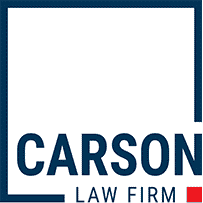
When someone passes away and leaves behind an estate, the executor is responsible for settling the estate and distributing assets to the beneficiaries. Sometimes a creditor may serve the executor with a claim against the estate, which complicates the process and can put the executor in a difficult position.
If you are an executor who has received a claim against the estate, here are some steps you can take:
- Review the Claim: The first step is to carefully review the claim to determine if it is valid. Make sure to review all the documents and evidence provided by the claimant to support the claim. You are permitted to ask the creditor to provide more information.
- Investigate the Claim: If the claim appears to be valid, it’s important to investigate it further. This may involve obtaining additional information from the deceased’s records, speaking with the creditor, or consulting with a probate attorney.
- Decide on a Course of Action: The executor must decide to accept or reject the claim by sending certified mail to the creditor of the executor’s decision and filing the proof of service with the probate court. It is important to note that Ohio law does not place any special duty on the executor to verify claims or accept valid ones; however, rejecting an otherwise valid claim may well lead to the creditor filing a lawsuit to protect its claim in the probate court, which the executor would then be obligated to defend.
- Determine if the Estate Has Enough Assets: Before taking any further action, it’s important to determine if the estate has enough assets to cover the claim. If the estate is insolvent, meaning it has more debts than assets, the executor will not be able to satisfy the claim, and estate insolvency proceedings will have to be invoked. Insolvency is a complex legal process, so it is often preferable to negotiate a settlement with creditors to avoid invoking this process.
- Consult with a Probate Attorney: When dealing with a claim against an estate, it is always a good idea to consult with a probate attorney. An attorney can help you understand your legal rights and obligations, as well as provide guidance on how to handle the claim in the most effective way possible.
Related: WHO PAYS THE PROBATE ATTORNEY FEES?
In conclusion, receiving a claim against an estate can be a complex and stressful situation for an executor. However, by following these steps and consulting with a probate attorney, you can ensure that the claim is handled in a fair and timely manner, and that the estate is settled according to the wishes of the deceased.
Are you an executor or administrator of an estate dealing with a claim? Call us today at 216-352-4243 or click here to book a FREE 15-minute consultation to speak with an attorney about your rights and obligations as fiduciary.


Leave a Reply